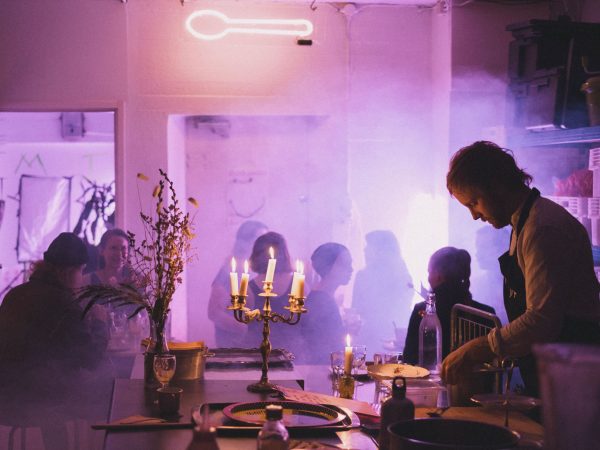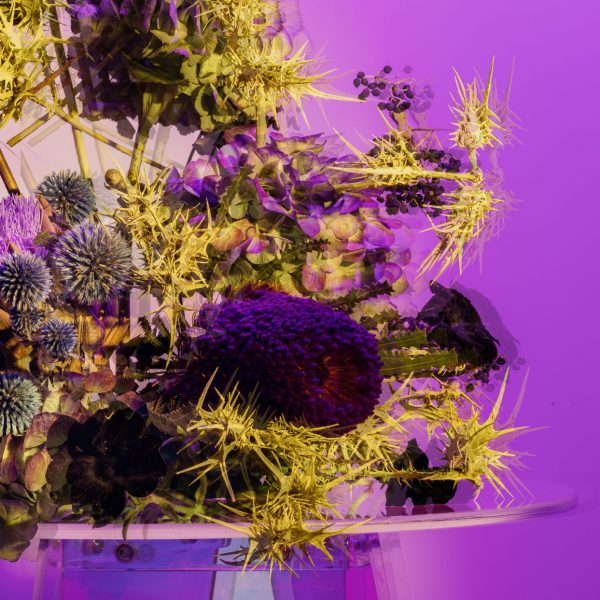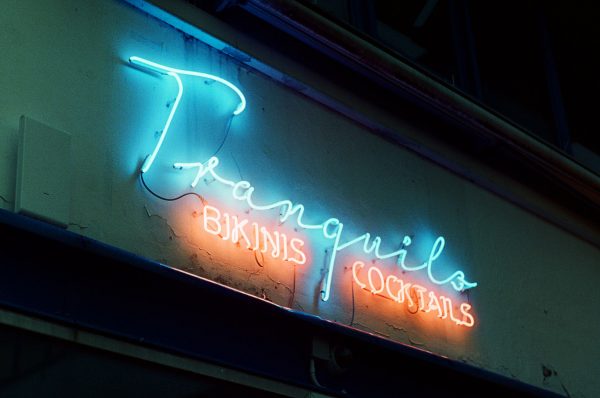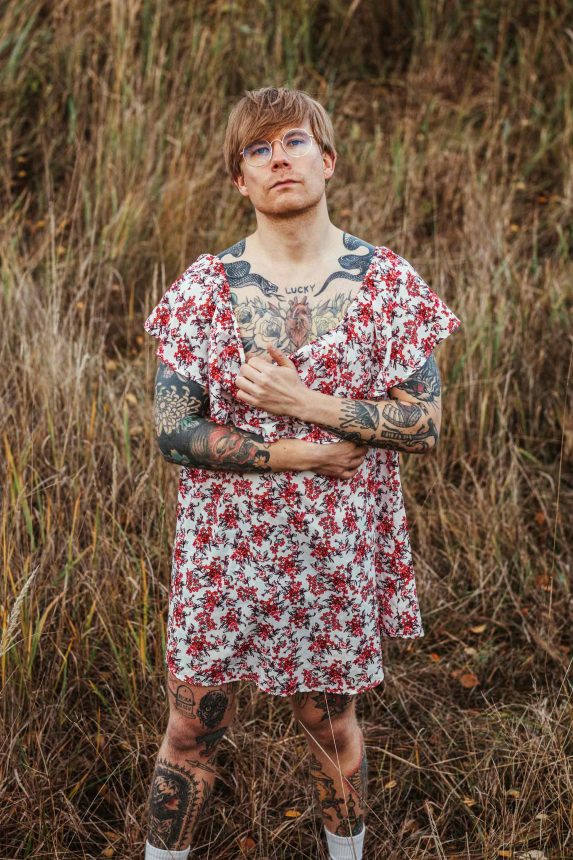
Six Hour Stroll – Uudenmaankatu
What happens when you spend six hours aimlessly strolling up and down one of the most epic streets of Punavuori with a camera and recorder? Read & figure.
It’s Monday and raining. Our strolling-team starts the big mission by heading for an easy start to meet up with a still unknown friend-of-a-friend, who should have his working premises in the very beginning of Uudenmaankatu. Very soon, we find Jose Riikonen waving his hand – let’s start the day.
13:00 Jose Riikonen’s workspace
Jose Riikonen is a freelance journalist known for his in-depth articles about Finnish music stars (and cars), published in the biggest and most beautiful magazines of the country, aka Helsingin Sanomat and X-lehti. We take a tour in his workspace, boil hot water for some instant coffee and burn our mouths. Time to get to know the man.
So, Jose, it sure is Monday today. What does inspiration mean to you – and do you have any lessons learned to share with us creatives?
—For me, inspiration is a mix of three: fear, excitement and anxiety. (laughs) And about creativity, then – what would be the least douchey thing to say? At some point, it helped me when I understood that however frightening or challenging a task is, it’s almost always still doable and only a matter of the level of misery and fuckuppedness: you basically need to get ready to face the fact that doing stuff sucks. Another tip would be to just do stuff, not only plan and get ideas one after another. Most of your doings will be shit, but something really good comes out of it occasionally, too.
Do you have any work philosophy?
—That’s something for others to evaluate. But I do try to understand people and be empathic. Not to nail them down but stay curious.
That’s beautiful. Do you find life ironic?
—Everything in life is ironic and always a little bit behind the curtains. (laughs)
Time to get serious: if you were Miss Universe, what world problem you’d solve?
—Pathetic, but it’d be climate change and biodiversity. No matter how well you have it in your life and in society, that’s an issue that always hangs above the head. It’d be nice to get it solved. Because of climate change, everything is always fucked up – this coffee cup, table and especially my BMW. It’s hard to stand it. We don’t always need to have it easy. Not with this, at least.
Yep, 100 %. Thanks – and one last tough one. What sort of movie would be made of your life, if given a chance?
—Oh, that’s bad. Actorwise, Jonah Hill looks like a 35-year old-baby – so he could play me. And I think David Lynch could direct it… Something like his second movie, what was it, yea, Eraserhead!”
14:00 Blue Lagoon
Right after leaving Jose’s premises, we see Milla Malkki and Sanna Noki having a team meeting in beauty salon called Blue Lagoon. They wave us in, and the vibe is harmonic and beautiful – as you’d expect.
Milla & Sanna, why Punavuori?
—It’s urban and everything is close – from restaurants to bars and nice little boutiques. People here are relaxed and kind. And just across the street you can find one of our fav lunch places, Sushi Bar & Wine. It’s great for having a glass of wine in lunch break.
What have you learned in the great School of Life and would like to share with our readers?
—To see possibilities in everything – and to never say never. We also like to celebrate openness in our team in general; it’s important to be open about what you want and how you’d like to develop.
Cool. Milla, how about the best compliment you’ve ever received?
—That I look happy. That’s when I’ve probably been in great energies!
14:30 C. Hagelstam Antikvariaatti
Bit further along the street, we sneak into an old bookstore to find Katri Arjava, a library assistant, inside. She’s worked with books for more than 35 years and lived close by in Ullanlinna since 1963, witnessing the area turn livelier througout the decades, with new boutiques and restaurants popping up.
What have you been most surprised about working here, Katri?
—That we have so many youngsters as customers. They’re great, buying philosophy, art and fiction. They are polite and know what they want – often Nietzsche, Thoreau, Murakami, ancient philosophers, and Russian classics. People love that they can find real book gems from here.
Which are your top authors? And what kind of book you’d be?
—That’s a difficult one, but I do love Bruce Chaplin and Jane Austen. And as a book, I’d be a historical novel, very old-fashioned.
We love that.

Nolla, Carlos
15:00 Nolla, Carlos
We cross the street and head to restaurant Nolla, where Mamu Brewing is busy making beer every Sunday and Monday. Beermakers and top chefs Carlos (also one of Nolla’s founders) and Berta open the door for us and show around in the beautiful nanobrewery focusing on fresh, low alcohol beers with local ingredients, such as Finnish grains and berries.
Carlos, you started with the brewery a few years ago in 2020, how has it been?
—The reception has been great, we’re lucky to be always on full capacity and selling everything we make. People seem to really like our beers, which are served in great restaurants such as Bonafide, Harju 8, Sakebar and Basbas to name a few. But yea, in the beginning we had no clue on how to make the beer, and we simultaneously had a strong vision to make it differently than it had been previously done here. It’s been challenging, for sure, but we got some help and are well on our way now.
Mamu Brewing is an interesting concept – something Nolla as a zero-waste restaurant also has.
—Yes. After already succeeding with Nolla, we wanted to come up with something special with the brewery’s concept, too. With multicultural and immigration led Mamu Brewing, we want to communicate that we’re proud of our beers and of being mamus, turning the usual meaning of the word around. The reception has been really good; there hasn’t been any hate messages. And yes, all our people come from different backgrounds; we have Turkish, Brazilian, Portuguese, German, Russian, Serbian, Spanish here – and Finnish people, too.
There’s a rumor that your staff loves sports. How does that go along with alcohol?
—It’s true that we’re quite sporty here: our goal is to be the fastest brewery in Finland in running. Alcohol and its after effects don’t really support a healthy lifestyle, and that’s why we love our low alcohol beer – which turned out to be harder to make than stronger ones, by the way. And yea, also, there was a gap in the market: many breweries seem to currently favor the strong IPA’s, for example.
Do you dream about going big?
—Mass scale isn’t what we’re looking for, and Nolla doesn’t want be a brew pub either. We do dream of having a different facility for doing more things. For example, no alcohol beers need different equipment.
Gotta admit that this place is pretty epic and has such a beautiful vibe, too. Do you work closely with Nolla?
—We like to keep the brewery separate from Nolla and create whatever we want – and zero waste ideology doesn’t fit in with brewery business, at least yet. But at Mamu Brewing, we’re all also chefs: for example, in addition to Nolla, I’ve worked in restaurants such as Chez Domique and Olo, and so it’s a happy marriage of food and beer. We work a lot to make our beers food friendly and easy to pair, it’s natural for us.
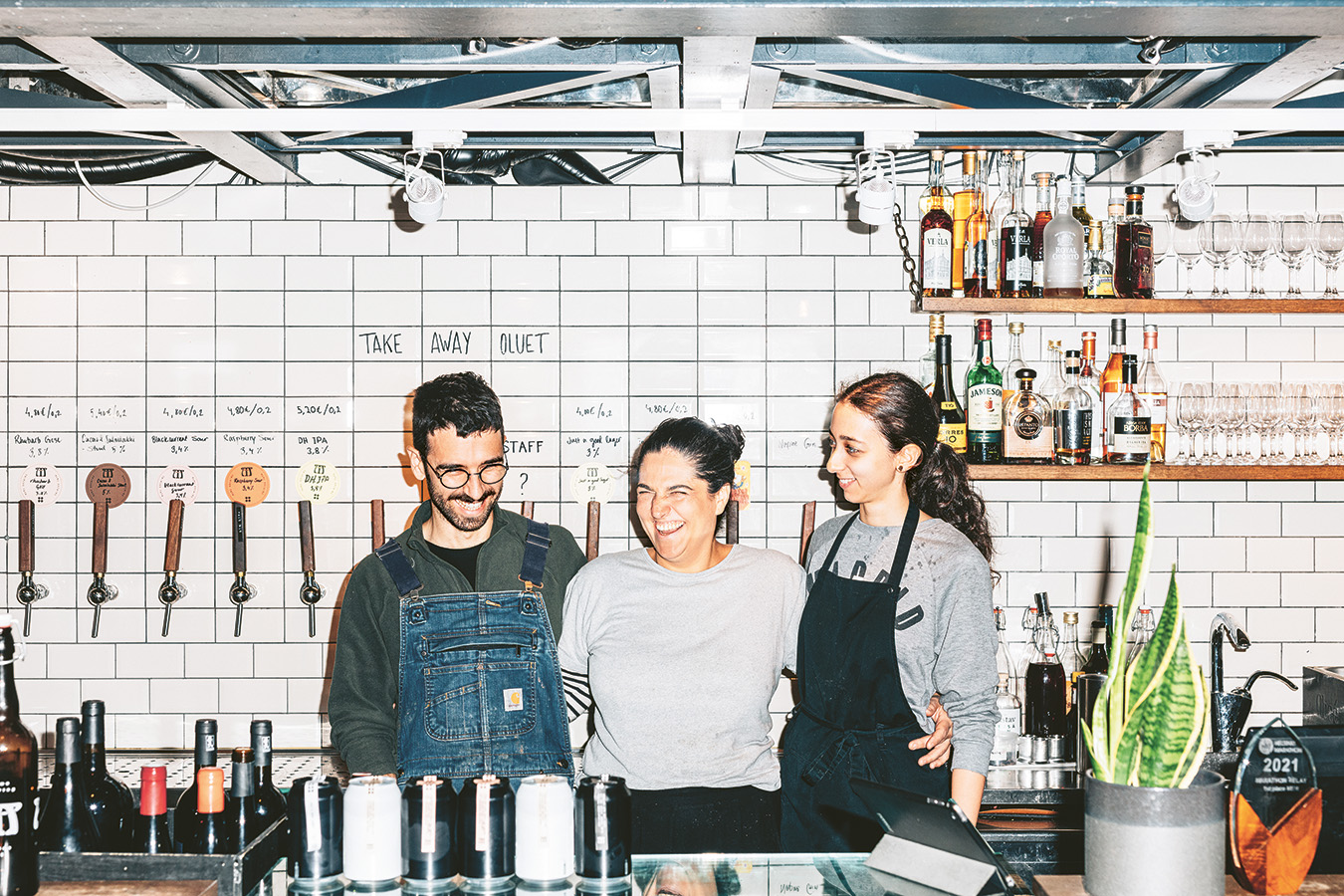
Nolla, Berta
15:45 Nolla, Berta
As Carlos hurries back to brewing – something critical is just about to happen timing-wise – we have time to chat with Brazilian-born Berta Schneider, who’s been in Finland for 4 years and already worked also at Olo, Villd and Teemu Aura.
How did you end up to this brewery, Berta?
—I’m passionate about restaurant business and all the new stuff happening in it. I met Carlos four years ago as a customer, and sustainability, local ingredients and so on have always felt very aligned with my own thoughts. Before Finland, I used to work in Piemonte, Italy, in a winery. I always thought wines and beers to be a very exciting industry. And we do make a good team: Carlos is more into the sour beer world; I like more ales and largers.
Why Finland? That’s something everything likes to ask.
—My father had a small hotel in a Finnish utopian colony when I grew up, and a small ice cream factory called Suomi Ice Cream. Since 18, I’ve been drawn to coming to Finland, back and forth. And I do love Finnish restaurant business: here, you can be in the industry and still have a social life. It’s one of the best markets to work in.
Cool! How would you describe people working in restaurants?
—No one normal works in food industry. People in this industry are always exciting and a bit underground, a bit crazy people. There’s a lot of space for creativity, but a lot of hard work, too – that’s something you need to find balance in, to also create new recipes and so on.
Fermentation has a special place in your heart. Tell us a bit about it and how do you find working with Finnish ingredients in general?
—At Teemu Aura, I worked with baking, which was amazing as fermentation process is never the same. That’s what maybe got me here, it’s exciting to know that each batch is going to be different. I also learned a lot at Villd about Finnish ingredients. It was a bit of a shock, going foraging and using wild foods. Still, that gave me a lot of palate and memories, which I can now put into beers. In general, I like good, well-made food with great, grounded flavors. I likewhen people get excited, I don’t do it just for myself. If I do a dish, I want it to have no imperfections. Good aesthetics, like a good virgin. (laughs) That ideology goes for the beers, too.
Any last words about life and continuous learning?
—Keep your knees healthy, mind clear and keep on moving. Somedays will be boring, some days there’ll be sunshine. There’s always the next day. And about learning: in the beginning I wanted to just sit here and cry. It’s the process of challenging yourself, and there can be accidents here and there, but we also need to think solutions – how to do this, how to fix that.
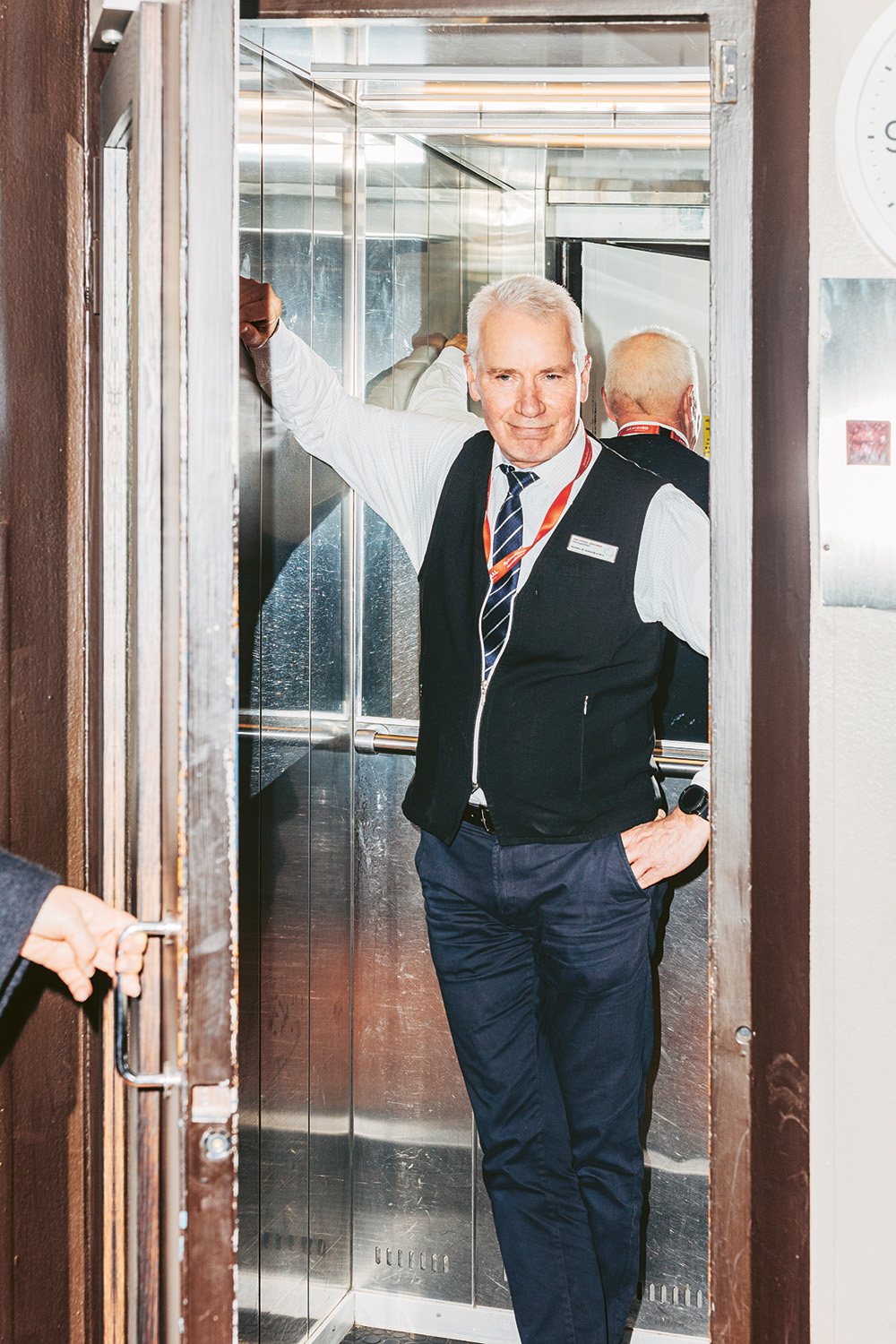
Sokos Hotel Albert
16:30 Sokos Hotel Albert
After a few excellent beers at Mamu Brewing, we head on for a little pause at Sokos Hotel Albert. In the lobby, we meet service manager Jari-Pekka J rvinen, who’s just started at the hotel two weeks ago.
Was Punavuori familiar to you before working here?
—Not really, even though I’m from Helsinki. But I have genuinely – and fast – learned to love the area, it has great restaurants, like our customers’ favorite Liemi, just a couple of blocks away.
Any golden life tips to share?
—Haha,I believe in treating others how you’d want them to treat you. That’s an old classic but it works; for example, I work in customer service, and do give and get a lot of energy from our customers – they are all so nice and our good service makes them happy.
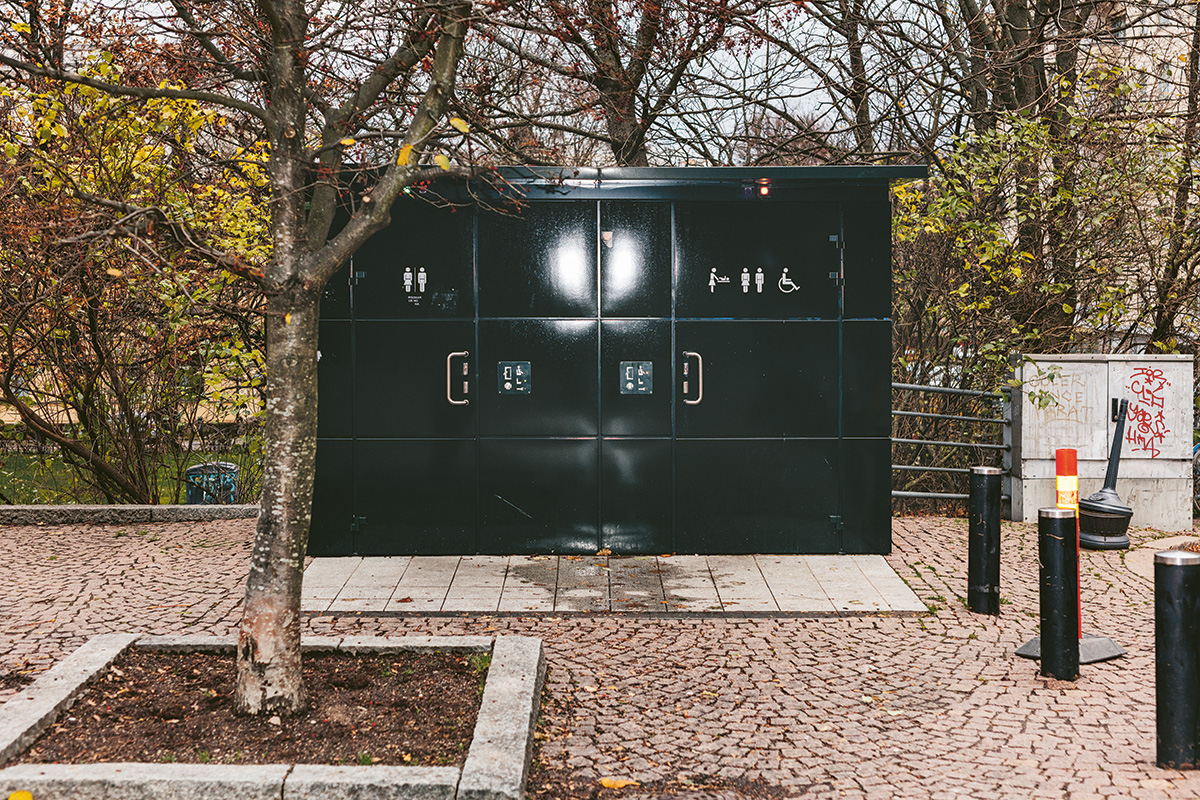
Public toilet
17:00 Public toilet (end of the street)
It’s getting darker, but we do make our way heroicly to the end of the street, which has a public toilet as a landmark. In here, Uudenmaankatu ends and shifts into legendary Sinebrychoff Park aka Koffin puisto. The park has seen sunnier days, so we turn around to search for day’s last adventures.
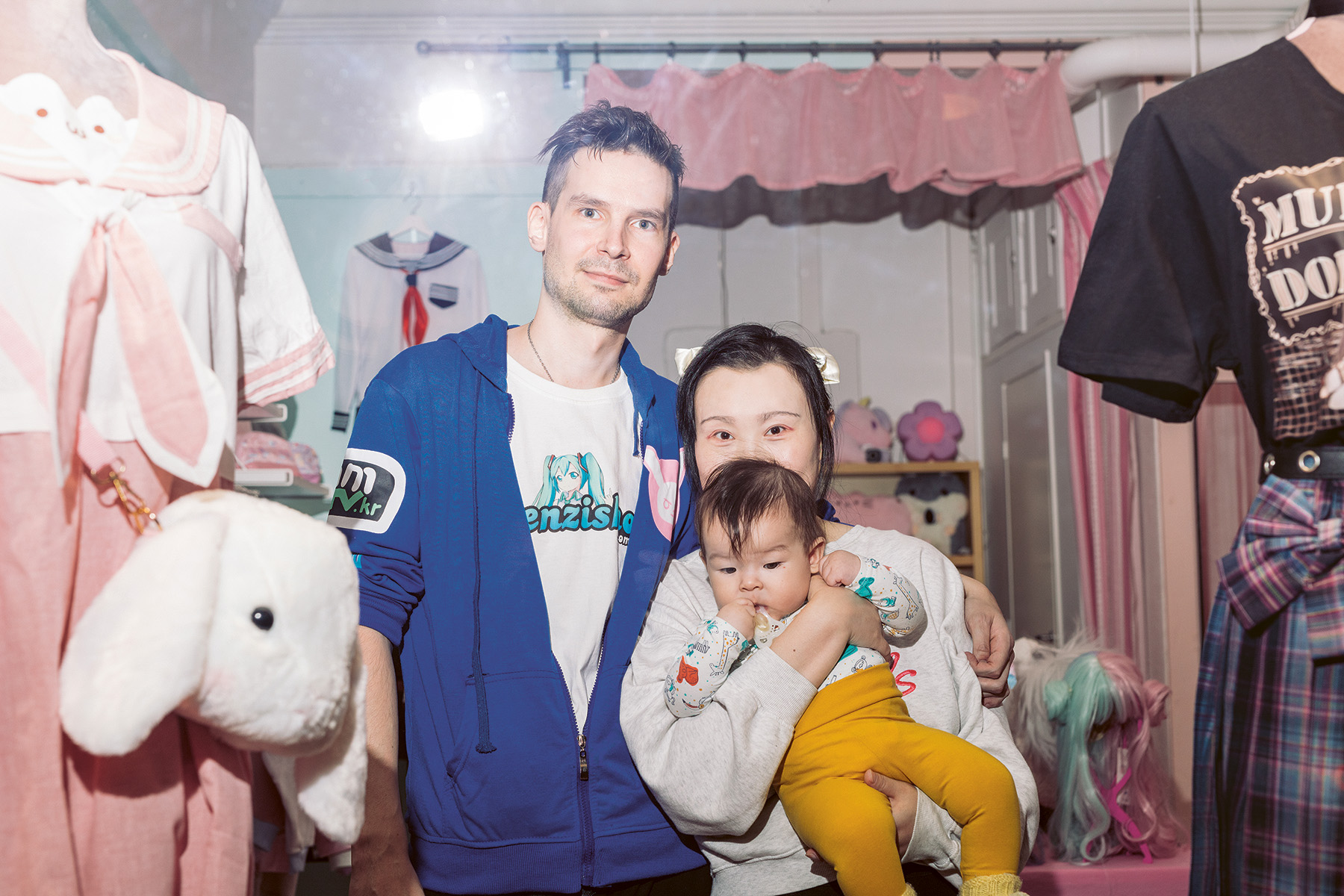
Lenzishop
17:15 Lenzishop
Something bright and unsual catches our eyes. Lenzishop sells anime, cosplay and kawaii products, and its owners are inside giving the shop it’s final touches – they tell it’s been open for just 3 days.
Well, congratulations for the new shop! Who are you and what is this place?
—I’m Kalle Nikara, from Jyv skyl . As a young man, I wanted to leave Finland to travel, and ended up to China for seven years – where I also met my wife. Now we’ve made it to Finland. Here, it’s easier with the family and I also felt ready for a change. This shop has been one of my big long-term plans. The cute fashion we sell here is mainly for youngsters between 13–25, but there’s also some 30+ people who like to wear Japanese street fashion. This kind of clothing is very popular in Japan, people get together and dress in cosplay uniforms. In Finland, it’s also a fairly big scene with around 100 000 people dressing up every now and then.
What made you choose Punavuori?
—Actually, my wife’s brother opened a Chinese restaurant called Pikku TaoTao just a few blocks away. I had been looking for a store space for quite some time, and it felt good to be close by.

Cafetino
18:00 Cafetino
We’re hungry, it’s dark and quiet, and our expectations for anything special to happen are dropping low. But no need to worry – we magically walk straight to a Creek restaurant (a local gem!) Cafetino, and find inside its owner George, a second-generation chef doing some evening chores.
Hello, George! Tell us about you and your place!
—I am Creek, from Crete, actually, and came to Finland because of my Finnish wife. I opened the store in 2015. I like the street, the place, the neighborhood, I work very hard. I love that my place has soul and people get to know each other here – maybe first me, then each other, too. The food I serve is Creek, absolutely, and everything is handmade and fresh. I only do a certain amount of portions each day – so when it’s gone, it’s gone, come next day again. There are enough eaters to keep me busy, and we’re open every day. I am very satisfied and happy.
That’s great to hear and you’ve clearly found your place here. What would you like to say for people thinking about their path?
—For all my life, I have done what I love. So I’d say if you don’t love what you do, you need to try to change it and try something new, study something new. Young people have dreams, and they need to be able to follow them. My dreams for Cafetino? Come on, I just renovated the place and I am happy here!
Amen. After a chat and learning a lot about Greek people (go to Cafetino for a real Greek vibe check), we’re offered delicious moussaka and some toast with Cretan olive oil and sea salt sprinkled on top. The food tastes heavenly after a long day out meeting people – thanks George and big thanks everyone opening their worlds for us this rainy Monday in Uudenmaankatu!
